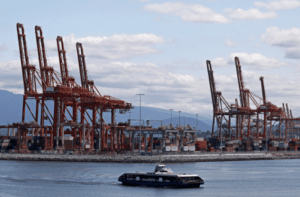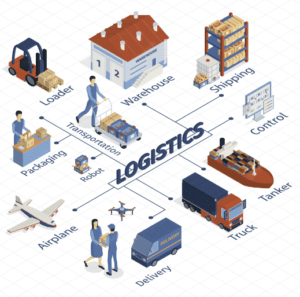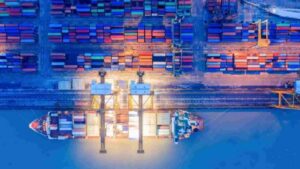
Dockworkers on Canada’s Pacific coast have retracted their strike notice set for Saturday after Prime Minister Justin Trudeau promptly called for a crisis meeting to address logistics and supply chain stability, highlighting the crucial role of port operations. The initial strike notice was declared illegal by a federal watchdog.
The International Longshore and Warehouse Union (ILWU) Canada immediately removed the strike notice, which was originally planned for 9:00 am on July 22nd, according to their website.
During the crisis meeting, Trudeau emphasized the urgency of resuming port operations and the potential impact on logistics, workers, employers, and the Canadian economy. He instructed officials to explore all possible solutions to protect supply chains, Canadian jobs, and the economy.
The ongoing strike has significantly disrupted logistics operations at two major ports, Vancouver and Prince Rupert, which are vital gateways for exporting natural resources and commodities and importing raw materials.
The Canada Industrial Relations Board (CIRB) ruled the strike illegal due to the union’s failure to give a required 72-hour notice before initiating the stoppage on Tuesday. In response, the ILWU issued a new 72-hour strike notice but later withdrew it.
Since July 1, around 7,500 dockworkers have been picketing the ports, causing substantial disruptions to cargo movement and logistics operations. The estimated cost of the disruption is approximately C$6.5 billion ($4.9 billion) based on the Canadian Manufacturers & Exporters’ calculation of about C$500 million in disrupted trade daily.
Transport Minister Omar Alghabra expressed impatience and mentioned that the government is exploring all potential logistics solutions, including the possibility of implementing back-to-work legislation. However, enacting such legislation could be politically sensitive, considering differing opinions among provinces and political parties.
While some parties and leaders support back-to-work legislation for a swift resolution to the logistics crisis, others, like the federal NDP and the Premier of British Columbia, advocate resolving the matter through negotiations at the bargaining table.
Trudeau’s minority government faces challenges in seeking support from opposition parties, especially the Conservatives or the Bloc Quebecois, if back-to-work legislation becomes necessary. This situation could strain the current Liberal-NDP agreement that supports the government if workers are required to return to their jobs, impacting logistics and supply chain stability.







